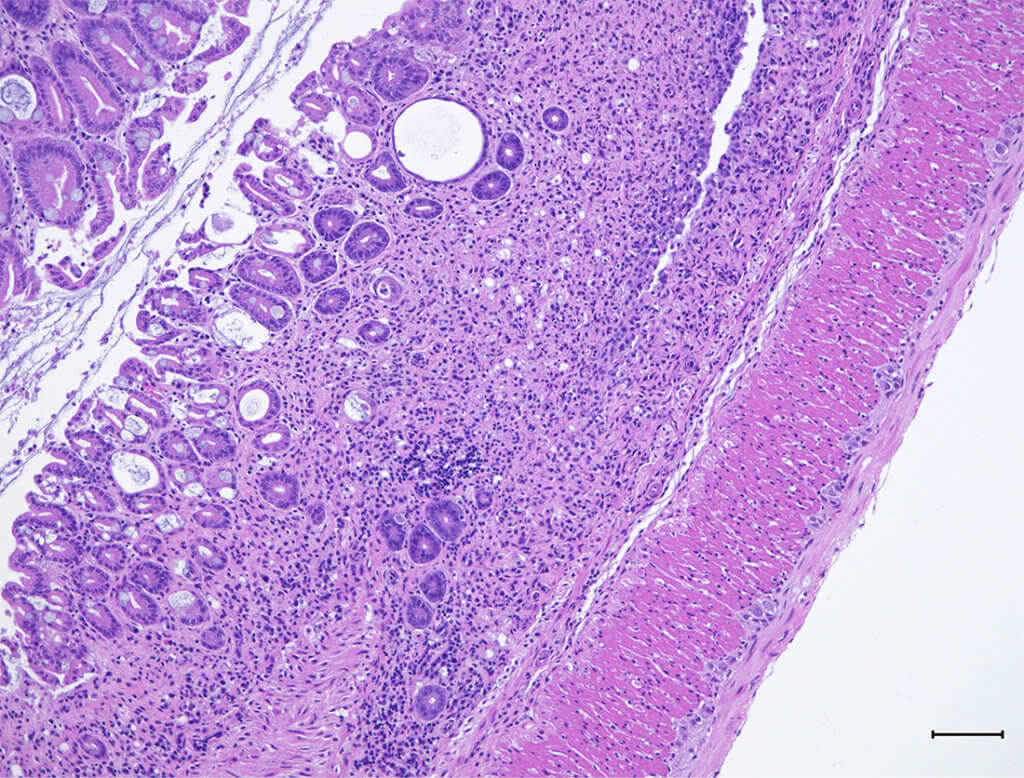Chemotherapy has a long list of side effects that can compromise the person’s quality of life, including a number of gastrointestinal responses. Fortunately, cancer researchers from China may have a way to prevent these effects from happening in the first place. Their recent study shows that inhibiting a protein called the GABAA receptor protects the gut from experiencing the toxic aftermath of a chemotherapy or radiotherapy session.
Intestinal stem cells are hit hard during chemotherapy and radiotherapy because they constantly divide and replace the cells lining the gut wall. The treatment causes DNA damage and, eventually, death in these intestinal stem cells, increasing the chances of intestinal injury.
The Food and Drug Administration has already approved a GABAA inhibitor called flumazenil, which is an anti-sedative that reverses anesthesia and treats benzodiazepine overdoses. The findings suggest expanding its use could prove beneficial for managing gastrointestinal side effects such as diarrhea and vomiting triggered by chemotherapy.
The team observed increases in GABRA1 levels—a part of the GABAA receptor—when the intestinal stem cells of mice were exposed to radiation or chemotherapy. When the researchers applied the GABAAR receptor inhibitor bicuculline, the mice did not experience the toxic gastrointestinal side effects often observed after both cancer treatments.

The survival of intestinal stem cells may have come from protecting the DNA of these cell types and limiting the formation of free radicals that arise after chemoradiotherapy. With a lower chance of cell death, intestinal stem cells remained viable, leaving behind a normal gut lining in mice. Additionally, mice given the GABBA inhibitor survived lethal doses of radiation or chemotherapy. Most importantly, inhibiting GABAA did not interfere with either chemo or the radiation’s ability to wipe out cancer cells in the body.
The researchers suggest flumazenil may be a promising option for people to take when undergoing cancer treatment. In the study, the authors note that flumazenil helped protect the intestines of mice when exposed to chemoradiotherapy. Using miniature lab-grown organs, flumazenil also protected colonic stem cells from toxic doses.
“Taken together, our data suggest that inhibiting the GABAA receptor is a promising strategy to specifically protect the intestine from chemoradiotherapy,” explains Dawei Chen, a researcher at Cheeloo College of Medicine, Shandong University in China and study coauthor in a press release. “Future studies are required to investigate the pharmacodynamics and tolerability of flumazenil in cancer patients undergoing treatment in the clinic.”
The study is recently published in the Journal of Experimental Medicine.
